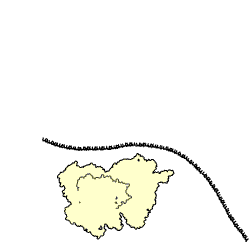
Back محركات جزيئية Arabic Molekulski motor BS Motor molecular Catalan Motor molecular Spanish موتور مولکولی Persian Moteur moléculaire French Motor molecular Galician מנוע מולקולרי HE Մոլեկուլային շարժիչ Armenian Motor molekuler ID

Molecular motors are natural (biological) or artificial molecular machines that are the essential agents of movement in living organisms. In general terms, a motor is a device that consumes energy in one form and converts it into motion or mechanical work; for example, many protein-based molecular motors harness the chemical free energy released by the hydrolysis of ATP in order to perform mechanical work.[1] In terms of energetic efficiency, this type of motor can be superior to currently available man-made motors. One important difference between molecular motors and macroscopic motors is that molecular motors operate in the thermal bath, an environment in which the fluctuations due to thermal noise are significant.